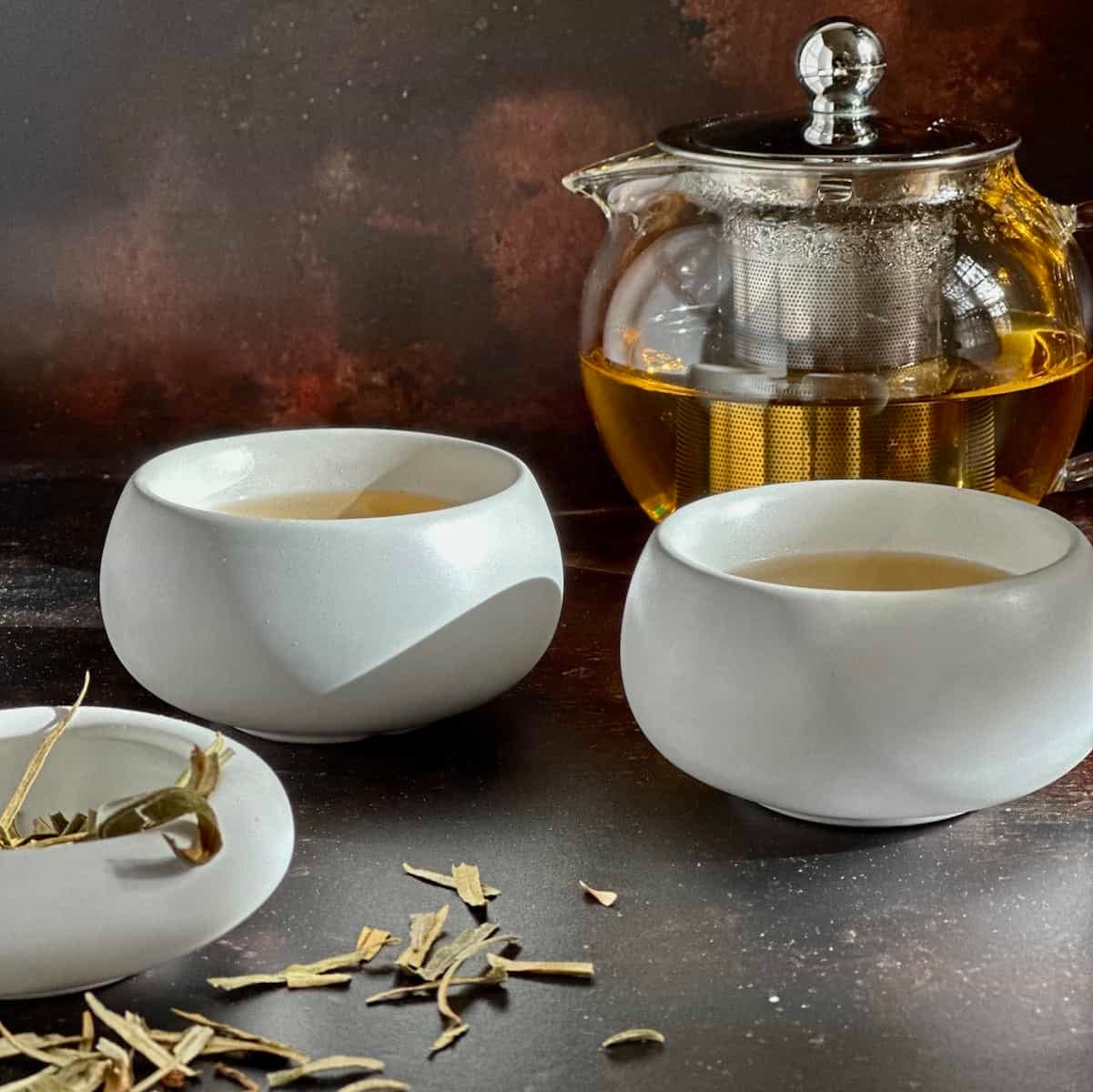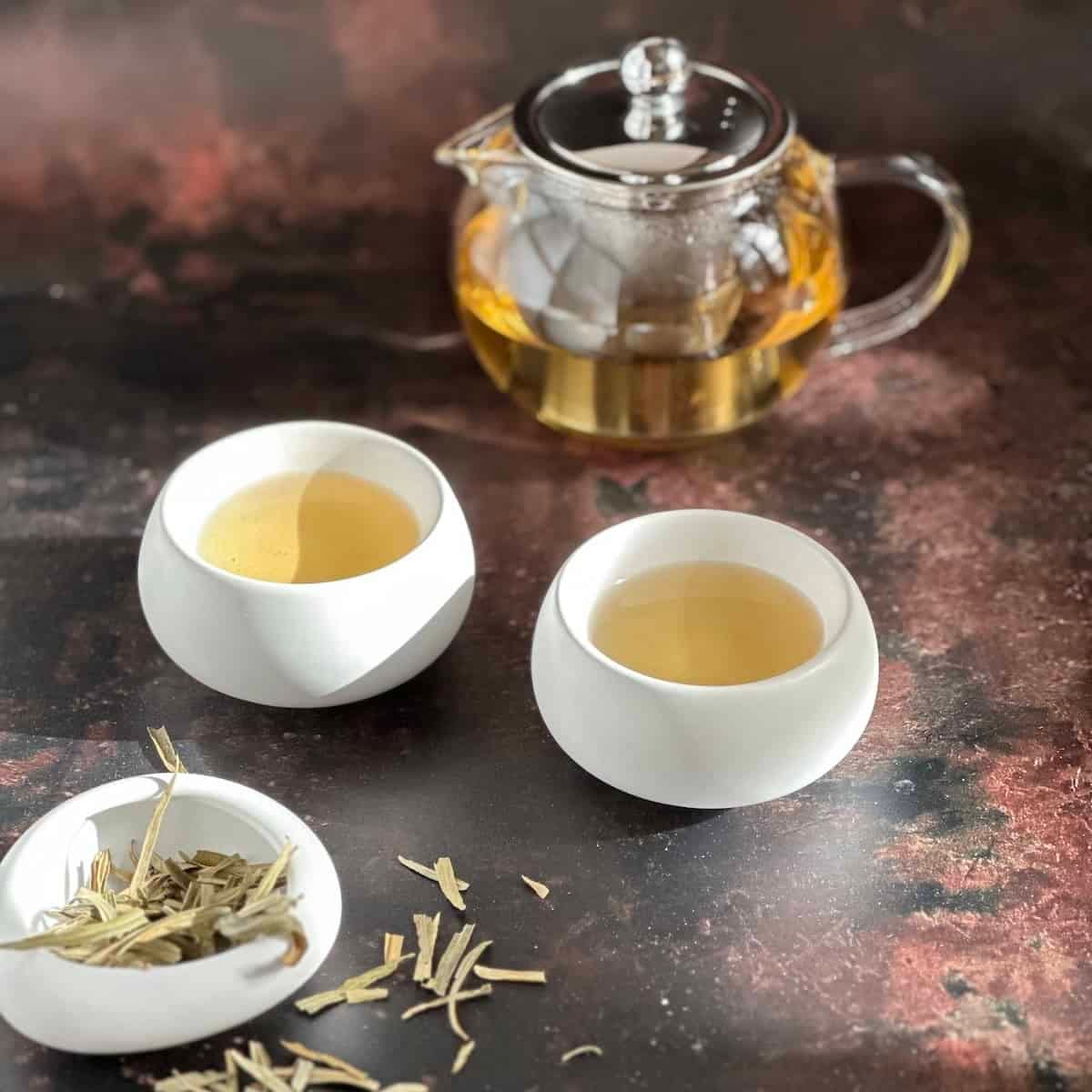Sea Buckthorn Herbal Tea Benefits & Recipe
With so many health perks, sea buckthorn is a plant worth trying!
I've discovered another Greek herbal tea that is delightfully delicious. This little powerhouse is already being used in foods, supplements, and beauty products, and it's only just getting started.
Many of you cannot or do not want to drink caffeinated tea, so I've been writing a series on herbal teas. Herbal teas do not contain caffeine, except for yerba matte. All tea from the Camellia sinensis plant, including black, green, oolong, white, and Puer, contains caffeine.
Technically, to differentiate Camellia sinensis tea from herbal tea, the herbal tea is called a tisane. But in conversation, tea can refer to either. They are all infusions of plant leaves, berries, flowers, bark, or roots.
I’m told the Greeks drink coffee more than tea. However, Greece has a strong tradition of drinking herbal tea more than any other type of tea. According to The Blue Zones Kitchen: 100 Recipes to Live to 100 by Dan Buettner,
"enjoying herbal tea is a daily ritual on Ikaria...which they often sweeten with honey."
In the world of herbal teas, sea buckthorn stands out as a treasure trove of health benefits and delightful flavors. Derived from the leaves of the sea buckthorn plant (Hippophae rhamnoides), this tea has been a well-kept secret in traditional natural medicine for centuries.
Sea buckthorn is a deciduous shrub known as Siberian pineapple, sand thorn, seaberry, and sallow thorn. In Greece, buckthorn is called Hippophaes (e-pof-i-es), meaning bright horse.
a Eurasian maritime shrub (Hippophaë rhamnoides) of the family Eleagnaceae having silvery leaves and orange-red edible berries and yielding a yellow dye.
— Merriam-Webster
Sea buckthorn berries are used for fresh fruit preparations; the fruits can be pickled as a tangy condiment or dried and ground into a powder for flavor enhancement. The berries are used for jams and jellies, while the fruit juice is used in vinegar and sauces.
The Sweet Secrets of Greek Honey
The leaves of sea buckthorn are dried and steeped into a tea, which is the application I am discussing. As published in Frontiers in Nutrition, Sea buckthorn has many uses, with a few discussed here:
"source of vitamins, antioxidants, protein building blocks, fatty acids, and minerals; for improving blood pressure and lowering cholesterol; preventing and controlling blood vessel diseases; and boosting immunity." 1
The plant has a rich history as a natural medicine in traditional European plant medicines.
“Since the 1940s, Russian scientists have researched the bioactive substances in the berries, leaves and bark of sea buckthorn, leading to the development of sea buckthorn foods and radiation protection creams for Russian cosmonauts.”
Sea buckthorn was also used as a natural remedy in Tibet.
“The medicinal value of sea buckthorn has been recorded in the Tibetan medical classic “Somaratsa,” dating back to as early as the first half of the eighth century.”
The ancient Greeks began using the individual elements of sea buckthorn for various purposes. Its incredible health benefits will make sea buckthorn tea a staple in your daily wellness routine.
Health benefits of sea buckthorn
Sea buckthorn is a fantastic plant packed with benefits for both people and animals, not to mention the environment. It's loaded with essential fatty acids, antioxidants, and vitamins that help protect your skin, boost your immune system, and fight inflammation. Some even say it could help guard against cancer, support brain health, and keep your liver in shape.
"Sea buckthorn has many health benefits, such as antioxidant, anticancer, anti-hyperlipidemic, anti-obesity, anti-inflammatory, antimicrobial, antiviral, dermatological, neuroprotective, and hepatoprotective activities."2
Rich in Antioxidants: Sea buckthorn is loaded with powerful antioxidants, including flavonoids and polyphenols, which help combat oxidative stress in the body. 3
Boosts Immune System: Buckthorn is a natural immune system booster, thanks to its high content of vitamins C and E. Regular consumption can enhance your body's ability to fight off infections and illnesses.
Anti-Inflammatory Properties: Sea buckthorn has anti-inflammatory effects, benefiting individuals with arthritis or other inflammatory disorders.
Supports Healthy Skin: Sea buckthorn promotes skin health by hydrating and nourishing the skin from within. Its anti-aging properties can contribute to a youthful and radiant complexion.
Heart Health: Studies suggest that sea buckthorn may positively affect heart health by reducing cholesterol levels and supporting cardiovascular function. 4
As you can see, sea buckthorn offers a treasure trove of health benefits, from immune support to skin rejuvenation. With this delicious tea recipe, you can incorporate this herbal tea into your daily routine as a health-conscious and flavorful choice. 5
Since I can't be in Greece every day, I discovered an authentic Greek tea company in the United States, Klio Tea. I often talk about this company because I like their products and buy from them frequently. My shipment of Greek olive oil just came in yesterday. (I’ve reordered this many times already. I like it because it’s lighter than most olive oils, and I only cook with extra virgin olive oil or natural butter.) Their Greek sea buckthorn leaves are organic and come from Evros, Thrace.
Klio Tea imports rare Greek honey, olive oils, and medicinal mountain teas sold as loose-leaf tea, which I doubt I would ever find in any grocery stores. I find the sea buckthorn tea with honey very relaxing.
Classic sea buckthorn Greek leaf tea recipe
The sea buckthorn leaves tea has a mild flavor, a bit like savory spice. I like to drink it in the evening because it is caffeine-free. I drink it hot with a bit of honey and lemon in it. It would make a lovely iced tea, refreshing in hot weather.
In addition to making it with honey and lemon, you can add a bit of fresh mint, a slice of orange, or berries such as blueberries or raspberries to the warm cup of sea buckthorn leaf tea.







